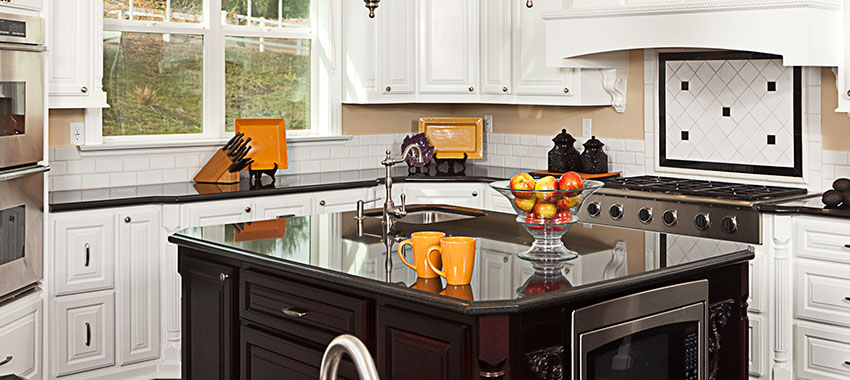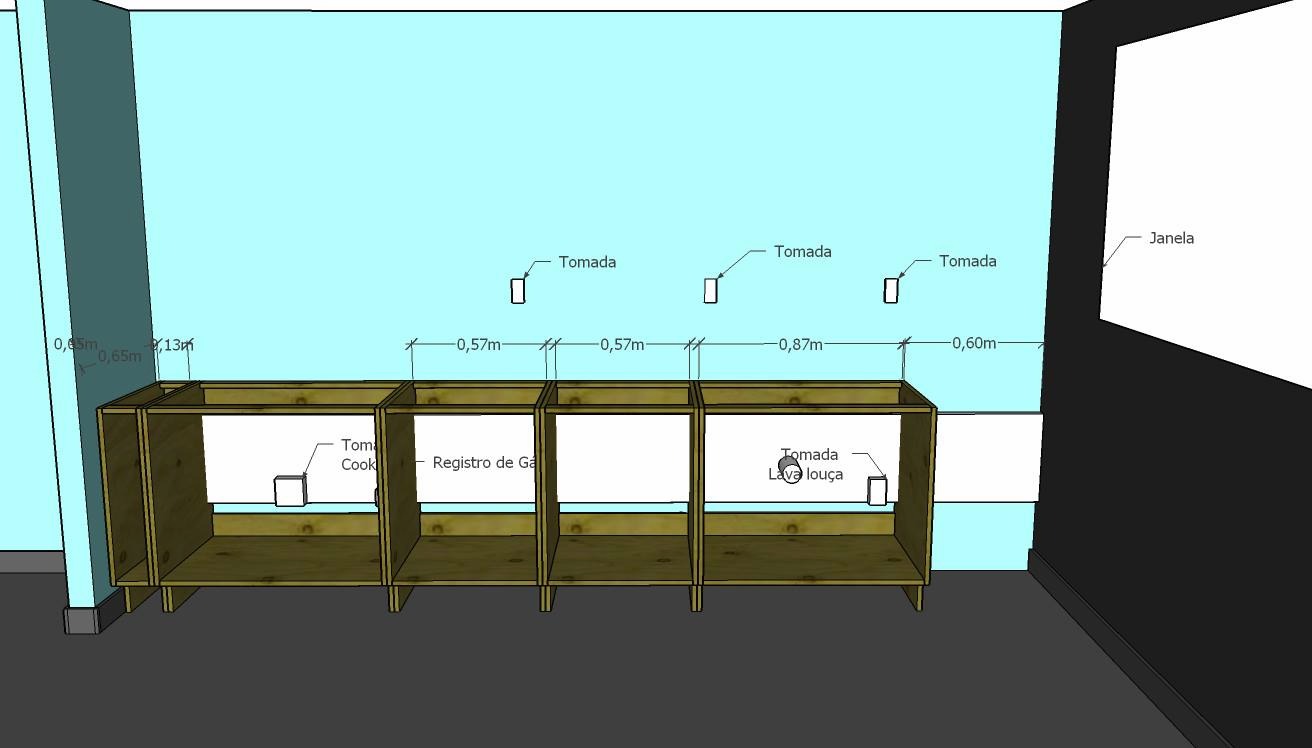If you’re wondering whether a granite countertop needs a plywood base, you’re in the right place! Let’s dive into this topic and find out everything you need to know. So, here’s the big question: does your shiny granite countertop require a plywood base?
Well, my friend, the answer is not as straightforward as a simple yes or no. The truth is, it depends on a few factors. Don’t worry, though; we’ll break it down for you and make it crystal clear. So buckle up, and let’s explore the world of granite countertops and plywood bases!
First things first, let’s understand why some people choose to use a plywood base and others don’t. By the end of this introduction, you’ll have a clear idea of whether or not you need that plywood base for your beautiful granite countertop. So, stick around as we uncover the truth behind this countertop mystery!
When installing a granite countertop, it is not always necessary to use a plywood base. However, in some cases, a plywood sublayer may be recommended to provide additional support and stability. The decision to use plywood will depend on factors such as the quality of the cabinets and the weight of the granite. It is best to consult with a professional installer who can assess your specific situation and provide expert guidance.

Does a Granite Countertop Need a Plywood Base?
A granite countertop is a popular choice for many homeowners due to its durability, beauty, and timeless appeal. However, when it comes to installation, there is often confusion about whether a plywood base is necessary. In this article, we will dive into the topic and provide you with detailed information to help you make an informed decision.
Why is a Plywood Base Important for Granite Countertops?
There are several reasons why a plywood base is recommended for granite countertops. Firstly, granite is a heavy material, and a plywood base provides additional support, ensuring that the countertop remains stable and doesn’t crack or sag over time. The plywood acts as a solid foundation for the granite slab, distributing the weight evenly across the cabinets or supports below.
Secondly, a plywood base helps to minimize the risk of damage during installation. Since granite slabs are quite fragile, especially around the edges, the plywood provides a buffer, reducing the chances of chipping or breaking. This is particularly important if the countertops need to be transported to your home before installation.
Lastly, a plywood base also helps to prevent moisture damage. Granite is relatively moisture-resistant, but it is still susceptible to water penetration from the seams and edges. By installing a plywood base, you create a barrier that protects the underside of the countertop from any water spills or leaks that may occur.
The Benefits of Using a Plywood Base for Granite Countertops
1. Stability and Support: A plywood base ensures that the weight of the granite countertop is evenly distributed, preventing any sagging or cracking.
2. Added Protection During Installation: The plywood acts as a buffer, reducing the risk of damage to the fragile granite slabs during transportation and installation.
3. Moisture Resistance: A plywood base helps to protect the underside of the countertop from water spills and leaks, prolonging the lifespan of the granite.
The Process of Installing a Plywood Base for Granite Countertops
When installing a plywood base for granite countertops, it is essential to follow the correct procedure to ensure a sturdy and long-lasting result. Here are the steps involved:
- Measure and cut the plywood to fit the dimensions of your countertop.
- Attach the plywood to the cabinets or supports below, using screws or construction adhesive.
- Seal the edges and seams of the plywood with silicone caulk to prevent moisture penetration.
- Once the plywood base is securely in place, the granite slabs can be installed on top, using an appropriate adhesive.
- Ensure that the granite is properly supported and leveled during installation.
- Finally, seal the surface of the granite countertop to protect it from stains and enhance its beauty.
Is a Plywood Base Always Necessary?
While a plywood base is highly recommended for most granite countertop installations, there may be certain exceptions. For example, if you have a very small or lightweight countertop, the additional support of a plywood base may not be necessary. However, it’s important to consult with a professional installer or contractor who can assess your specific situation and provide guidance.
Final Thoughts
When it comes to installing a granite countertop, using a plywood base is generally recommended for its many benefits, including stability, added protection, and moisture resistance. However, it’s important to consider factors such as countertop size and weight when determining the necessity of a plywood base. Ultimately, consulting with professionals in the field will help ensure a successful and long-lasting installation.
Key Takeaways: Does a Granite Countertop Need a Plywood Base?
- Granite countertops generally need a plywood base for support.
- Plywood strengthens the countertop and prevents cracking and damage.
- A plywood base creates a level and sturdy surface for the granite.
- Using plywood also helps to distribute the weight of the countertop evenly.
- It is essential to consult with a professional to determine the specific requirements for your countertop installation.
Frequently Asked Questions
When it comes to installing a granite countertop, there are many factors to consider. One important question that often comes up is whether a plywood base is necessary. In this article, we will address this question and provide you with answers based on expert knowledge and industry standards.
Q: What is the purpose of a plywood base for a granite countertop?
A: A plywood base serves as a sturdy and stable foundation for a granite countertop. It helps distribute the weight of the countertop evenly across the cabinets or supports below, preventing any sagging or cracking. Plywood also provides a solid surface for the granite to be secured to, ensuring a secure and long-lasting installation.
Additionally, plywood helps to level the surface and acts as a moisture barrier, reducing the risk of water damage or warping. It provides a consistent base that helps to minimize any inconsistencies or imperfections in the underlying cabinets or supports.
Q: Can I install a granite countertop directly on the cabinets without plywood?
A: While it is technically possible to install a granite countertop directly on cabinets without a plywood base, it is generally not recommended. Without a plywood base, there is a higher risk of the countertop cracking or becoming uneven over time as the cabinets settle or shift. Plywood acts as a buffer, absorbing any movement and ensuring that the countertop remains stable.
Furthermore, using a plywood base allows for easier installation and adjustment of the granite countertop. It provides a smoother surface and allows for better adhesion of the adhesive or mortar used to secure the countertop. Overall, using a plywood base is the recommended method to ensure a stable and durable installation.
Q: What type of plywood should be used for a granite countertop base?
A: When it comes to selecting plywood for a granite countertop base, it is important to choose a high-quality, exterior-grade plywood. This type of plywood is designed to withstand moisture, making it suitable for the kitchen or bathroom environment where granite countertops are typically installed. Look for plywood with an “Exterior” grade label, which indicates that it is durable and moisture-resistant.
Additionally, ensure that the plywood is at least ¾ inch thick to provide adequate strength and support for the granite countertop. Thinner plywood may not be able to withstand the weight and pressure exerted by the countertop and may result in cracks or instability.
Q: Can I use other materials instead of plywood for a granite countertop base?
A: While plywood is the most common and recommended material for a granite countertop base, there are alternative options available. Some installers may use cement backer board or other types of engineered boards as a substitute for plywood. However, it is important to consult with a professional installer to ensure that the alternative material meets the necessary strength and durability requirements for supporting a granite countertop.
Keep in mind that the alternative material should be moisture-resistant and capable of providing a stable and level surface for the countertop. It should also be able to withstand the weight and pressure exerted by the granite. Always seek advice from a professional when considering alternative materials for a granite countertop installation.
Q: Should I hire a professional to install a granite countertop with a plywood base?
A: While some homeowners may choose to install a granite countertop themselves, it is highly recommended to hire a professional for this task, especially when using a plywood base. Professional installers have the experience and expertise needed to ensure a proper and secure installation.
They will know how to properly measure and cut the plywood, as well as secure it to the cabinets or supports. They will also have the necessary tools and equipment to safely handle and install the heavy granite slabs. Hiring a professional ensures that the countertop is installed correctly, minimizing the risk of damage or issues down the line.

Summary
So, do granite countertops need a plywood base? The answer is, it depends. If your cabinets are sturdy enough, you may not need plywood. However, if there are concerns about weight or support, adding a plywood base can be a good idea. It provides extra strength and stability for your countertops.
In conclusion, adding a plywood base is an optional precaution for granite countertops. It can help distribute weight and provide added support, especially if your cabinets are not very strong. So, consider your specific situation and consult with a professional to determine if a plywood base is necessary for your granite countertops.
